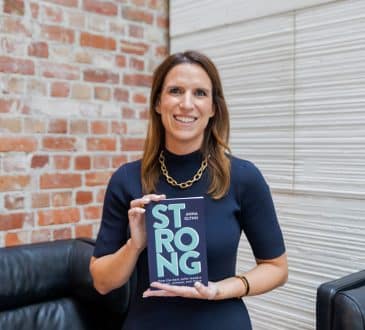How To Start Job Hunting As A Student

Job hunting, the very mention of it can be a great cause of worry and fear. Survival is not a game in which you can gamble all the time. For that, you cannot always rely on the generosity and resources of your social relations. It is imperative that you take it upon yourself to grow as an individual and fend for yourself – and only employability can make that happen. But, is it easy to find jobs? No, not at all! Even the most seasoned professionals would tell you that the job market can be tiring, unpredictable, and extremely harsh.
Job hunting becomes all the more challenging and, occasionally, frightening for students, especially the first-time graduates. As you jostle your way into the job market, you are bombarded with a mind-boggling amount of information, eligibility requirements, rejections, free advice, and whatnot.
So, to streamline the process, I have listed a few tips that may be helpful for students:
- Identify your interest areas
The first thing you must do is identify the kind of job profile you are most comfortable with. To ascertain that, you should figure out your interest areas. In simpler words, shortlist the domains where you can work. For example, you are a law graduate and are interested in the domain of intellectual property rights. Keeping that in mind, you should explore related profiles, firms and companies that offer relevant positions. Once you identify interest areas, you will have a definite head-start and will know which areas require your utmost attention. - Update your resume
Quite a few acquaintances of mine have been in the HR department of several organizations, and nearly each and every one of them complains about the poor quality of resumes sent to them. When I say ‘poor quality of resume’, I intend to draw your focus on the poor formatting and lack of updates on the resume. They tell me that students send resumes without editing them even once. Poor grammatical structures, ancient and/or often irrelevant credentials, and poor organization of the content are too common to be surprised at. Hence, update your resume up until your most recently accomplished credential. - Don’t apply to every vacancy that opens up
Yes, I understand that you desperately need a job but that does not mean you apply to every organization that exists on this planet. The problem with this approach is that you will blindly send over your resume everywhere and this will be very effortlessly noticed by the assessors. More importantly, you will fail to keep a track of where and when you applied for a position. When you are sending over resumes for a thousand vacancies, your cover letter, resume, and application will be highly generic and this will immediately dwindle your chances of getting shortlisted and/or selected for the job. - Stellar references go a long way
You might have the shiniest credentials in your resume but stellar references just add stars to your overall prospects. Generally, the application process requires the candidates to send over reference letters as well. These letters act as statements of affirmation that you are indeed, as capable and skilled as your resume makes you out to be. It is advised that you get such letters from professionals of expertise and repute because it is also the professional background of these people that counts. So, make sure you have these letters prepared once you jump into the job market. - Prepare for your interview like it is the end of the world
I have often seen candidates take interviews for granted. Many candidates think that interviews are merely formalities and the fact you have been shortlisted means that you are more or less selected. Well, hate to break it to you, but an interview is a decisive act. You fail in an interview and can lose an opportunity no matter how eye-blinding your credentials are. An interview round is a chance for the recruiters to ascertain whether you can contribute to the workplace environment beyond your professional expertise. Employers seek individuals who can cooperate, coordinate, and learn as they work. It is equally important to judge you on how you present yourself, your ideas, and your overall approach towards work. Tell me, who would want to work with an obnoxious, self-serving, highly qualified brat? Only those who are left with no choice! Your qualifications, after all, will only take you so far.
Add CEOWORLD magazine to your Google News feed.
Follow CEOWORLD magazine headlines on: Google News, LinkedIn, Twitter, and Facebook.
This report/news/ranking/statistics has been prepared only for general guidance on matters of interest and does not constitute professional advice. You should not act upon the information contained in this publication without obtaining specific professional advice. No representation or warranty (express or implied) is given as to the accuracy or completeness of the information contained in this publication, and, to the extent permitted by law, CEOWORLD magazine does not accept or assume any liability, responsibility or duty of care for any consequences of you or anyone else acting, or refraining to act, in reliance on the information contained in this publication or for any decision based on it.
Copyright 2024 The CEOWORLD magazine. All rights reserved. This material (and any extract from it) must not be copied, redistributed or placed on any website, without CEOWORLD magazine' prior written consent. For media queries, please contact: info@ceoworld.biz
SUBSCRIBE NEWSLETTER








